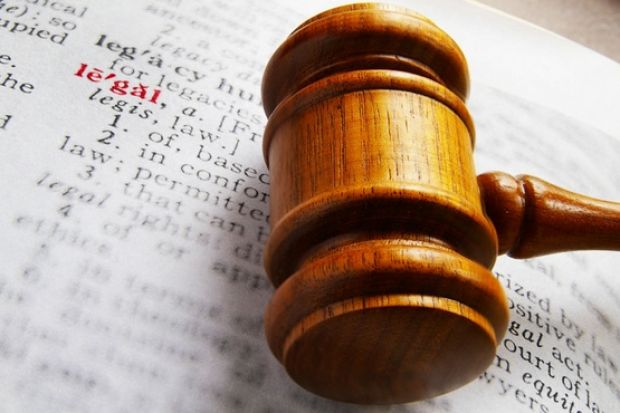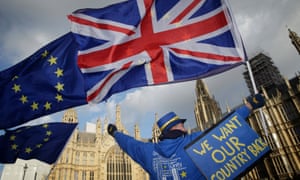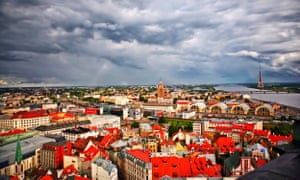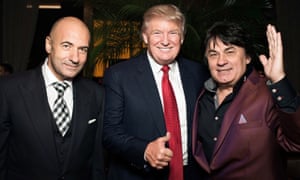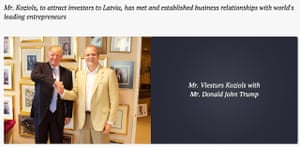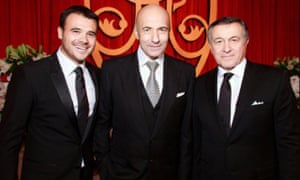New Jewish group in Labour Party backs right to BDS
Activism and BDS Beat17 August 2017
Jewish members of the Labour Party have founded a new group. Jewish Voice for Labour will launch at the UK main opposition party’s conference in Brighton next month.
The new initiative presents a challenge to an existing Israel lobby group that positions itself as the representative of Jewish members of Labour.
“Our mission is to contribute to making the Labour Party an open, democratic and inclusive party, encouraging all ethnic groups and cultures to join and participate freely,” the new group said.
Jewish Voice for Labour’s founding document upholds “the right of supporters of justice for Palestinians to engage in solidarity activities, such as boycott, divestment and sanctions,” or BDS.
It adds that it opposes “attempts to widen the definition of anti-Semitism beyond its meaning of hostility towards or discrimination against Jews as Jews.”
This has been a key goal of the Jewish Labour Movement, an existing Israel lobby group within the Labour Party, that has sought to advance Israel’s agenda of delegitimizing BDS activism by equating criticism of Israel and its Zionist state ideology with anti-Semitism.
Jewish Voice for Labour criticizes the Jewish Labour Movement for its promotion of Israel. Unlike the JLM, Jewish Voice for Labour says it “does not make promoting the centrality of Israel to Jewish life a condition of membership.”
Celebrate and debate
Jewish Voice for Labour’s chair is Jenny Manson, a former Labour councillor and parliamentary candidate. A retired tax inspector, she is a long-standing member of the Labour Party in Finchley and Golders Green, an area of North London with a large Jewish population.
It is also the constituency where Jewish Labour Movement chair Jeremy Newmark stood as a candidate for parliament in June’s general election. He failed to win the seat back from the ruling Conservative Party.
Manson said the new group Jewish Voice for Labour would “provide a much-needed forum for Jews who want to celebrate and debate the long and proud history of Jewish involvement in socialist and trade-union activism.”
She said they “invite everyone of Jewish heritage in the Labour Party to join us in continuing these great traditions.”
Israel lobby’s voice
The existing Jewish Labour Movement is a group run by an Israel lobbyist, which works closely with the Israeli embassy in London. It was at the forefront of the campaign against Labour leader Jeremy Corbyn last year, claiming the party under him was a cesspit of anti-Semitism.
The Jewish Labour Movement is affiliated to the UK Labour Party and says it “supports” the Israeli Labor Party. It is also a part of the World Zionist Organization – one of four key “national institutions” in Israel which aim to foster Jewish settlement on Palestinian land.
Although an older organization, the Jewish Labour Movement was moribund until the beginning of 2016. It was then taken over by longstanding Israel lobbyist Jeremy Newmark, who became its chair in February 2016.
Former Israeli embassy officer Ella Rose was then hired as its first director in August of that year.
A former president of the Israeli-government-funded Union of Jewish Students, Rose was later investigated by the Labour Party after being caught on camera wishing her enemies would “die in a hole.”
The footage was part of an undercover investigation by Al Jazeera into the Israel lobby’s influence on UK political parties.
It also showed Newmark working closely with Israeli ambassador Mark Regev during a closed door meeting at the Labour Party conference.
Newmark has a history of making false accusations of anti-Jewish bigotry as part of his efforts to silence and discredit the UK Palestine solidarity movement.
Implicit support for settlements
Newmark’s Jewish Labour Movement says that it supports the World Zionist Organization’s Jerusalem Program, which states as one of its goals: “Settling the country as an expression of practical Zionism.” The program defines “the country” as “Eretz Yisrael” – a term Zionists use to designate the whole of historic Palestine, including the occupied West Bank and Gaza Strip.
The use of this phrase, as well as a small map icon showing an outline of the whole of historic Palestine plus Syria’s Golan Heights on the Jerusalem Program web page, makes it clear that Newmark’s group implicitly endorses Israeli settlements in the West Bank.
All Israeli settlements in the West Bank and the Golan Heights are illegal under international law.
These institutional commitments undermine public claims by Newmark to oppose “the occupation” in line with Labour Party policy.
Earlier this year, Newmark was also reportedly responsible for the watering down of Labour’s general election manifesto on the issue of Israeli settlements in the West Bank.
Last September, Newmark claimed to The Electronic Intifada that his group participates in the World Zionist Organization to “oppose settlements and to speak out against the occupation.”
The World Zionist Organization receives tens of millions of dollars from the Israeli government to found and develop Israeli settlements, including in the occupied West Bank and Golan Heights
https://electronicintifada.net/blogs/asa-winstanley/new-jewish-group-labour-party-backs-right-bds
